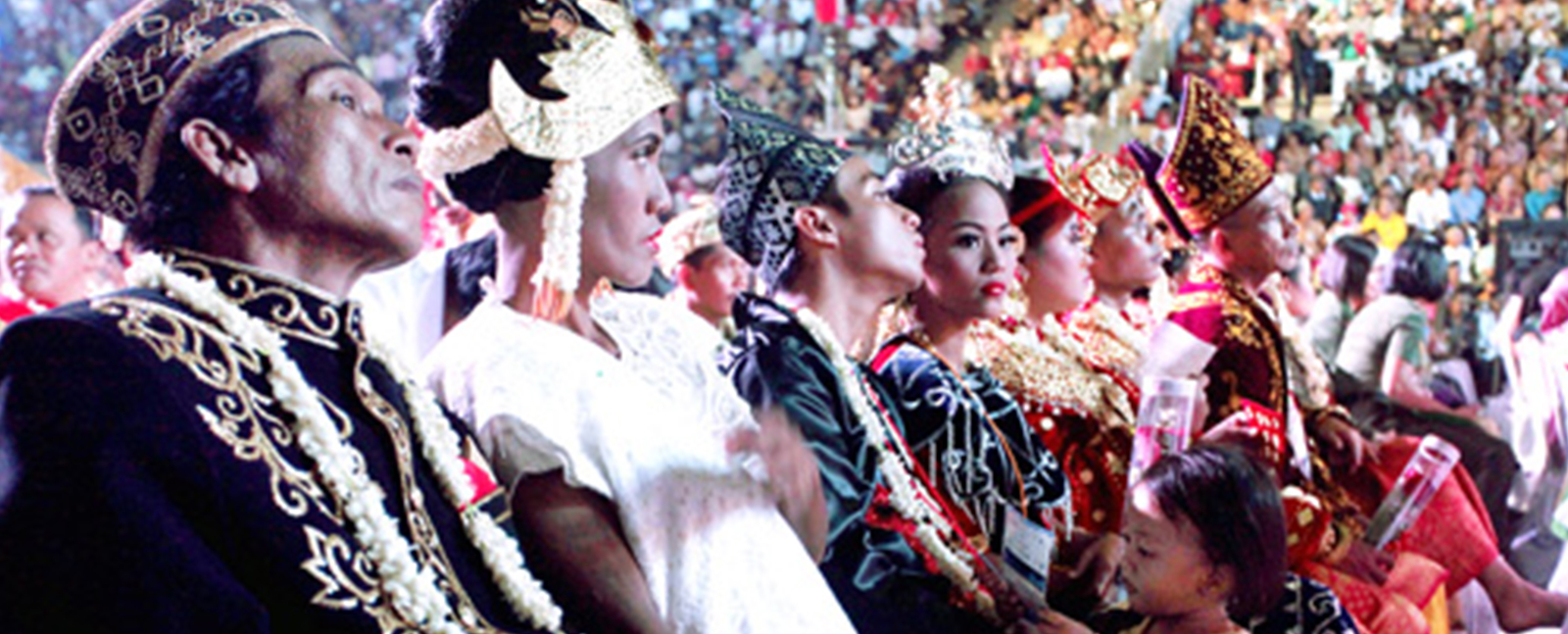Mass wedding project delivers access to employment and government services
10 December 2015 | Yaya Winarno Junardy, President, Indonesia Global Compact Network

The challenges
Today, millions of Indonesians lack legal or national identity papers such as marriage or even birth certificates. In the poorest of households up to 55 per cent of couples do not have a formal marriage certificate, while an estimated 47 per cent, or almost 40 million children, either do not have a birth certificate, or the parents claim that they have but cannot produce it (Baseline Study on Legal Identity: Indonesia's Missing Millions, 2014). Data from the Ministry of Home Affairs suggests that the figure for those lacking a birth certificate is as high as 76 per cent or more than 50 million individuals from the population in total.
Primarily Muslim-populated, Indonesia mandates that Muslim citizens register their marriages with the Religious Affairs Ministry's local office, while non-Muslim citizens register with the local Civil Registration Authorities. According to Law No. 24/2013 on Population Administration, every child has the right to a free birth certificate, regardless of the status of the parents' marriage. Even if the parents are not married, or only married according to religious customary law, children can still obtain their birth certificate, but are not permitted to have their father's name listed on the document, listing the mother as the sole parent. Needless to say such children face the cultural and social stigma of being "a child of a single mother".
Often trapped in poverty, families can neither financially afford, nor legally overcome the hurdle of obtaining a marriage certificate. Administrative costs and a convoluted process add to the issue. There is also lack of awareness and understanding of the importance for possessing valid papers.
Yet without the papers, families don't have access to national health care, public education, legal rights, formal employment opportunities, even the micro-credit opportunity and "home for the poor". This is in violation of human rights and the State philosophy Pancasila. Without proper education, the future generation is at stake. The impoverished continue to live in poor conditions, and while Indonesia has a demographic dividend for at least 15 years, having millions of young people enter working age but unable to compete for jobs due to lack of education, is bound to create social unrest in the future.
The Mass Wedding Program
With the aim of helping people from underprivileged backgrounds a project for mass weddings, initiated by Yayasan Pondok Kasih (House of Love Foundation) - a non-profit organization based in Surabaya - has been conducted annually since 2004.
The first large scale mass wedding , involving up to 4,541 couples from poor families in Jakarta and the surrounding areas, was held in 2011. The project was easily the world's largest mass wedding reception at the time, attended by more than 20,000 people on 19 July 2011.
In 2014, another mass wedding was conducted, this time with the support of the Global Compact Network Indonesia whereby the local UN Network joined forces in collaborative action with the Jakarta Provincial Government, civil service organisations and businesses to involve 5,115 couples from underprivileged backgrounds. This was followed by a grand mass wedding reception, conducted on 28 January 2015 at Istora Senayan in South Jakarta - another world record.
The project is not a simple undertaking. It requires coordination of all parties in order to perform the tasks from searching and identification, interview and screening for eligibility, completing all the requirements, holding the marriage according to religion, registration process at the local Civil Registration Authorities, mobilising transportation and logistics for wedding reception, and finally the issuance of marriage and birth certificates.
Muslim couples have to now register with the Office of Religious Affairs (KUA), or in some special cases, with the Religion Court to legalise religious marriages that were previously not registered, while non-Muslim couples register their marriage with the local Population and Civil Registration Agency.
Up to 400 social workers from Jakarta's Social Affairs Department are deployed to support the project. The event also has the support of the Indonesian Army, especially when it comes to logistical support for mass wedding receptions and security.
The future solution
A breakthrough is needed in order to implement a permanent solution nation-wide. Initiated by the Ministry of Social Welfare, cross ministerial government policy was recently issued to address, simplify, and speed up the current process.
This should be followed by policy and implementation guidance for all parties involved in order to ensure every new birth is registered with a birth certificate automatically, and without any complicated bureaucratic procedures.
There are important factors that need to be considered:
- Wedding and birth registration, and the certification that accompanies it needs to be provided for free;
- The process needs to be decentralised to the village level in order to speed it up;
- Data needs to be nationally centralised to ensure data integrity and so it can be utilised for all purpose ;
- All discriminatory requirements for birth certificates need to be removed; and
- There needs to be a clear coordination among all parties involved in the process.
Lastly, the Government should draw on Mohammad Yunus' Grameen Bank policy, where he says: "the poor people are afraid to come to the bank, and therefore, the bank should come to the poor". This is true for Indonesia's marriage and birth certificate process also whereby the Government should not wait for the people to come to the registration office, instead the Government should go to the people.
 LexisNexis
LexisNexis
